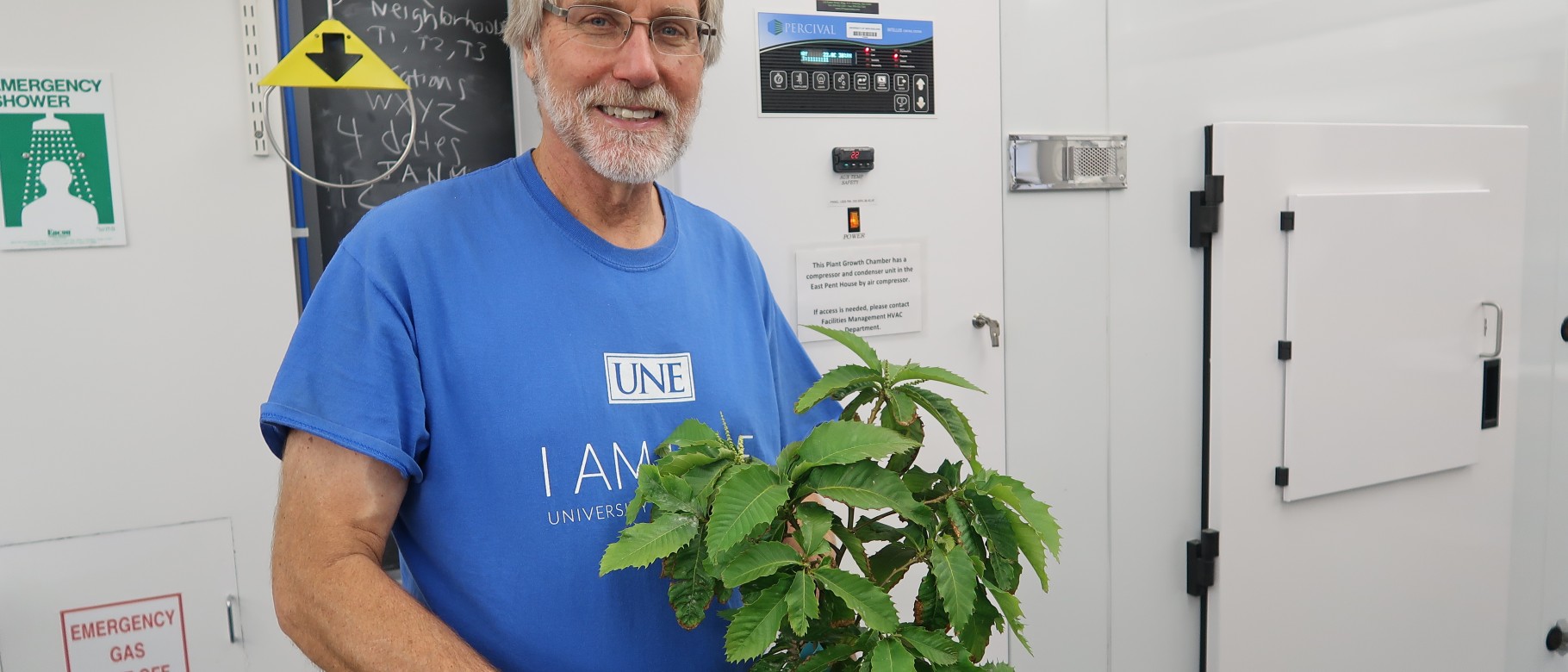Thomas Klak's project to restore the American chestnut tree featured on NEWS CENTER Maine's 207

A project by Thomas Klak, Ph.D., professor in the Department of Environmental Studies, and his students to restore the American chestnut tree was recently featured on NEWS CENTER Maine's 207.
UNE is the only place in New England where students are working with fungal blight-tolerant American chestnut seedlings.
A team of scientists created the seedlings by inserting a gene from wheat into them. The wheat gene protects the plant from fungal blight. Many wild and food plants, such as grasses, mosses, bananas and strawberries, have that same gene to defend against blight.
Only a few institutions across the country now have the seedlings.
“These are valuable resources, and we want to be very careful with them,” commented Klak. “This is the first time a blight-tolerant American chestnut has existed in New England in the tree’s 55-million-year history. We believe this is the beginning of a real turnaround for the American chestnut.”
The American chestnut was all but destroyed during the last century by an accidentally imported fungal blight that is still killing the few remaining trees today. The blight has wiped out an estimated four billion chestnuts.
“I think it's really great that we're taking responsibility, acknowledging what happened and trying to help re-establish them,” explained Paige Dugan (Environmental Science, ’20).
Approval from the federal government is needed to make the blight-tolerant chestnut available for public dissemination.
A special permit from the U.S. Department of Agriculture (USDA) allows UNE to have 50 of the seedlings. Students in the Environmental Studies program are now working with 12 of them.
“I'm doing graduate-level work at an undergraduate level,” stated Tyler Riendeau (Environmental Science, ’21). “We’re investigating how we can incorporate certain genes from other species into new ones. We are living in the age of biotechnology, and what I’m doing right now will definitely help me in my career.”
The students are also working to restore the cultural significance of the American chestnut.
“Roasting chestnuts for Christmas was part of American culture before the blight,” Riendeau said. “That might be a surprise to some people who have never heard of that before.”
Trees reproduce through the exchange of pollen. Klak and his students are working to produce pollen in the seedlings through intense, speed breeding conditions in the greenhouse and lab at the Harold Alfond Center for Health Sciences.
“We’re working to push them towards sexual maturity in as little as six to 12 months, where normally that would take at least three years,” Klak said.
“So far I love the progress,” Dugan exclaimed. “The trees are responding well, while under a bit of stress from the intense lights.”
After seedlings produce pollen, Klak says he will apply for a more advanced USDA permit that will allow him and the students to pollinate some wild Maine chestnuts, in a limited area, under very strict regulations.
According to Klak, if the seedlings help restore the American chestnut, it will be the greatest comeback of any tree species in North American history.